2023.05.03
National Tsing Hua University (NTHU) in Taiwan and the National Science and Technology Council (NSTC) recently held a press conference at NTHU, announcing the successful development of Taiwan's first quantum secure communication network, which provides the highest-level of security against the most advanced attack. The team, which is led by Associate Professor Chih-sung Chuu (褚志崧), is planning to cooperate with Chunghwa Telecom to develop practical applications for quantum communication technology.
The press conference featured a demonstration of the quantum communication system. Research and Development Director Powen Chiu (邱博文) used the encrypted network to speak to Director General Meng-fan Luo (羅夢凡) of the Department of Natural Sciences and Sustainable Development of the NSTC and Chunghwa Telecom Senior Executive Vice President Rong-shy Lin (林榮賜), with clear sound quality and no delay. However, as soon as someone began to eavesdrop, only noise could be heard.
NTHU President W. John Kao (高為元) compared the demonstration to the famous event 147 years ago, when Alexander Graham Bell made the first phone call in history after he accidentally knocked over a bottle of acidic solution and called to his assistant, “Mr. Watson, come quickly, I need you!”
Tsung-tsong Wu (吳政忠), minister of the NSTC, said that this was the first press conference on this invention which is sure to gain worldwide attention.
Chuu said that the internet often uses the RSA encryption algorithm, which is considered difficult to crack because it takes billions of years to factorize very large integers. But with the advent of quantum algorithms, the factorization could eventually be carried out in just a few seconds, making it imperative to search for more secure encryption.
Chuu explained that quantum encryption technology uses the uncertainty principle of quantum mechanics, i.e. the bits of the key are encoded in conjugate properties such as the polarizations in non-orthogonal bases. So when someone begins to eavesdrop on the wrong basis, the bit will change accordingly, making it impossible to obtain a copy of the key and crack the encryption, no matter how much time is spent.
In 2019, Chuu's team and the Center for Quantum Technology at NTHU successfully demonstrated point-to-point quantum key distribution by using a self-made single-photon source to establish a prototype of quantum communication channel. Today they have further increased the key rate by 100 times and adopted a star network technology to connect multiple client points. They have successfully created Taiwan's first quantum secure communication network, ensuring the security of voice calls, data and video transmissions.
Chuu explained that the quantum secure communication network employs a protocol by which user A and user B communicate via a trusted operator using quantum key distribution. For example, if user A's key with the operator is 01101..., and user B's key with the operator is 11011...; the operator compares the bit-wise identity of the two sets of keys and the test result is XOXXO... (wrong, right, wrong...), then user A corrects the key accordingly, and the encrypted communication can begin.
In order to simplify the quantum encryption system, the team adopted time-bin-encoded weak coherent states and replaced the quantum light source with an attenuated pulsed laser, which increases the effective key generation rate and enhances transmission speed.
Chuu said that this technology will improve the security of network communications and it is expected to be suitable for use in finance, e-commerce, personal information transmission, and national defense communications.
Professor Felix Gwo (果尚志) of the Department of Physics said that quantum encryption communication technology is changing rapidly, and that researchers around the world are striving to create a faster, more secure encryption network. “National cyber security has to be continually updated, which needs to be done domestically,” said Gwo, adding that the team's work is expected to make Taiwan a leader in the field of quantum encryption communication technology.
The other team members are Sheng-yao Huang (黃聖耀), Tsung-ying (蔡宗穎), Yen-ru Chen (陳彥儒), Chun-yao- Yang (楊竣堯), Yen-an Shi (施彥安), and Chun-yuan Cheng (鄭畯元), all doctoral students or postdoctoral researchers.
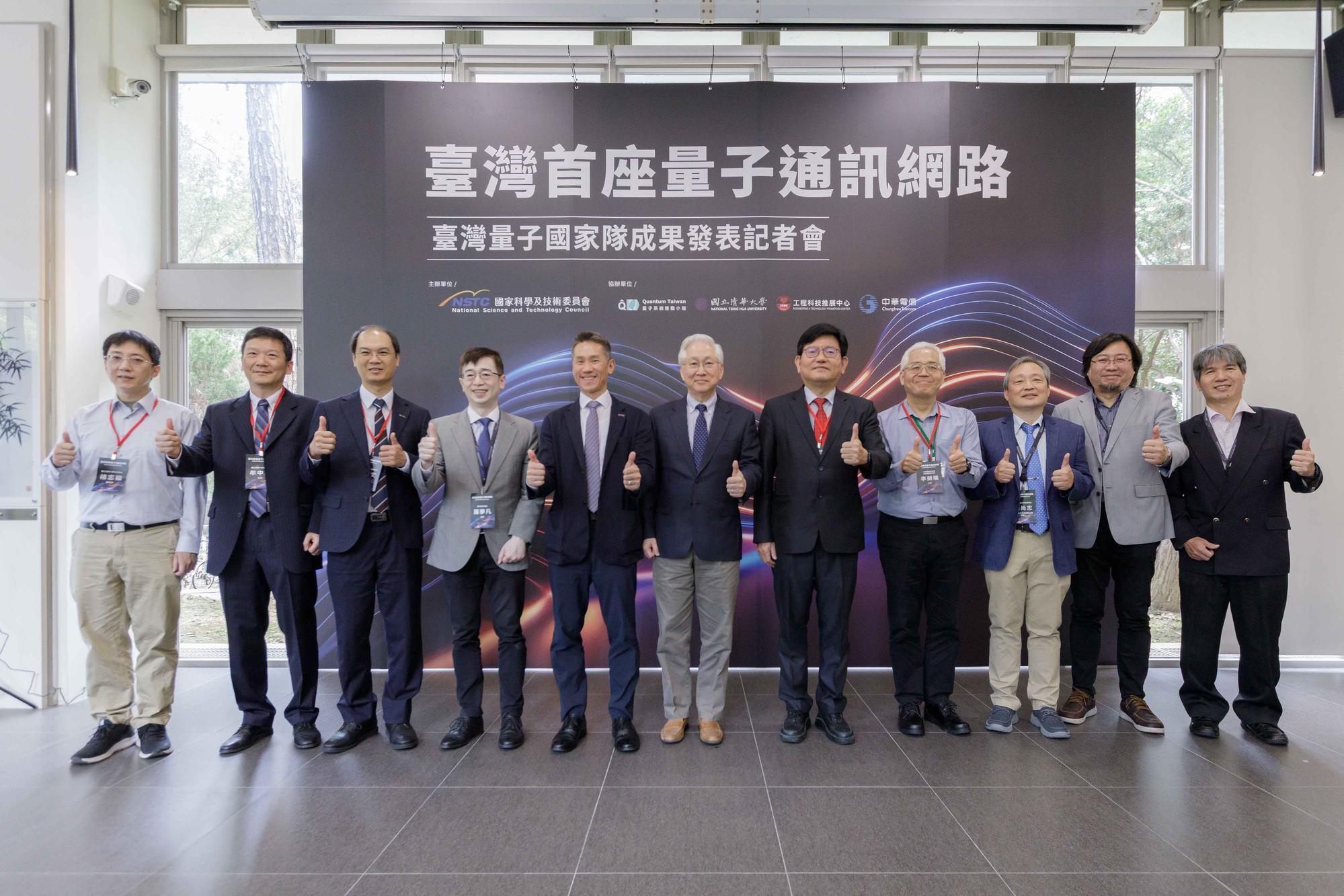
The NSTC and NTHU recently held a press conference announcing the successful development of Taiwan's first quantum secure communication network.
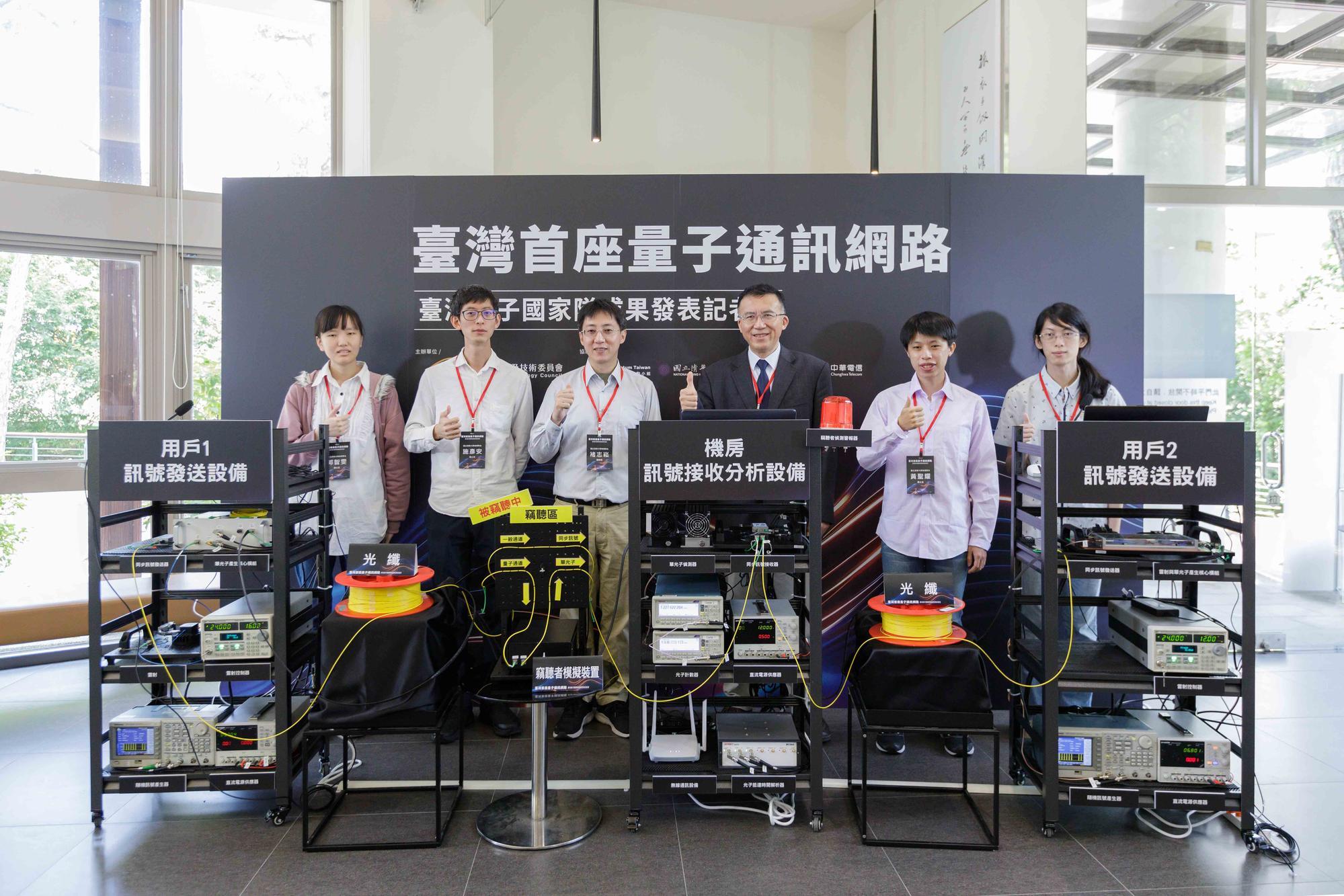
A.P. Chih-sung Chuu (褚志崧) (third from left), Prof. Ite A. Yu (余怡德) (fourth from left), and the other members of the NTHU research team.
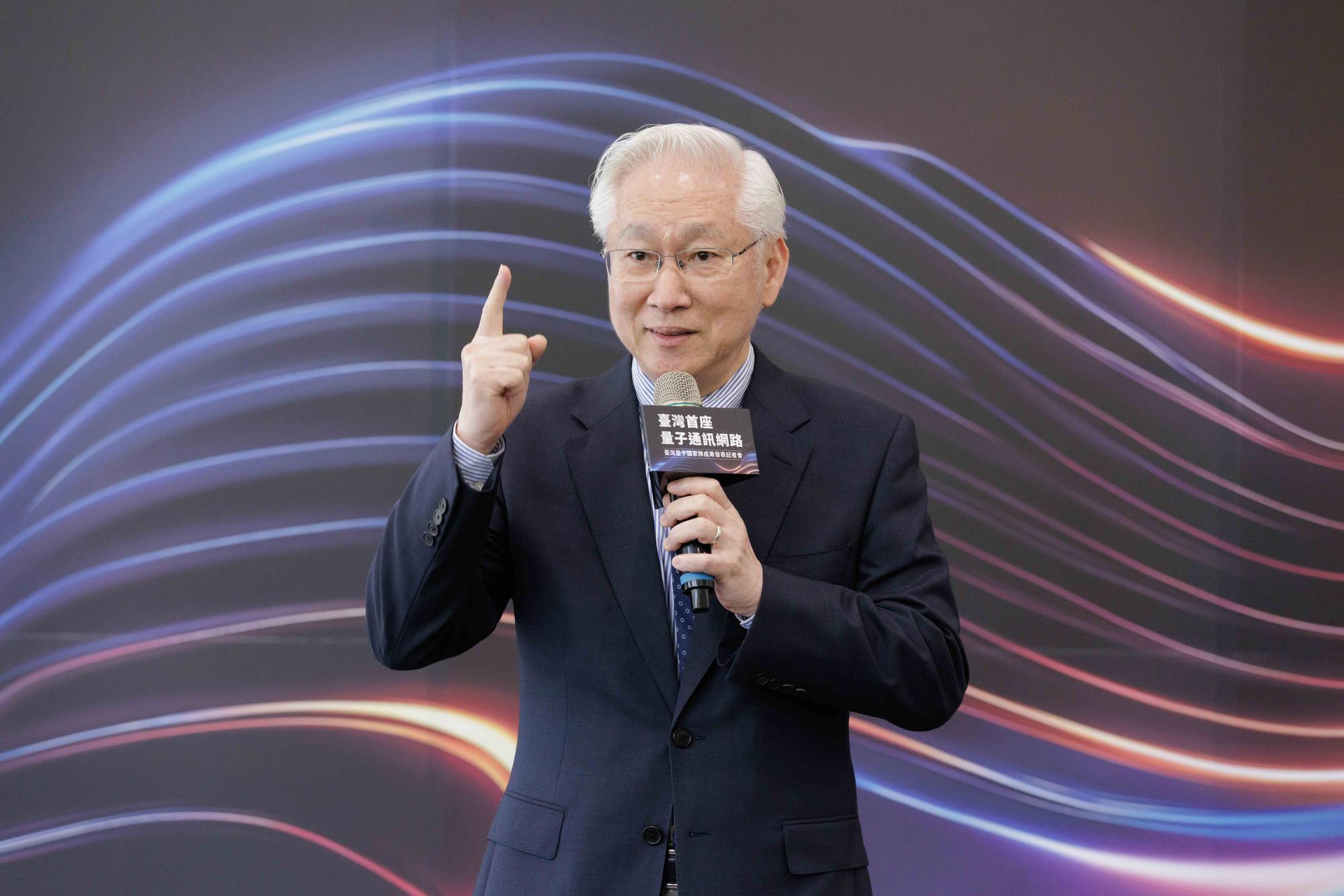
Tsung-tsong Wu (吳政忠), minister of the NSTC, said that this invention is sure to gain worldwide attention.

NTHU President W. John Kao (高為元) compared the demonstration to the famous event 147 years ago, when Alexander Graham Bell made the first phone call in history.
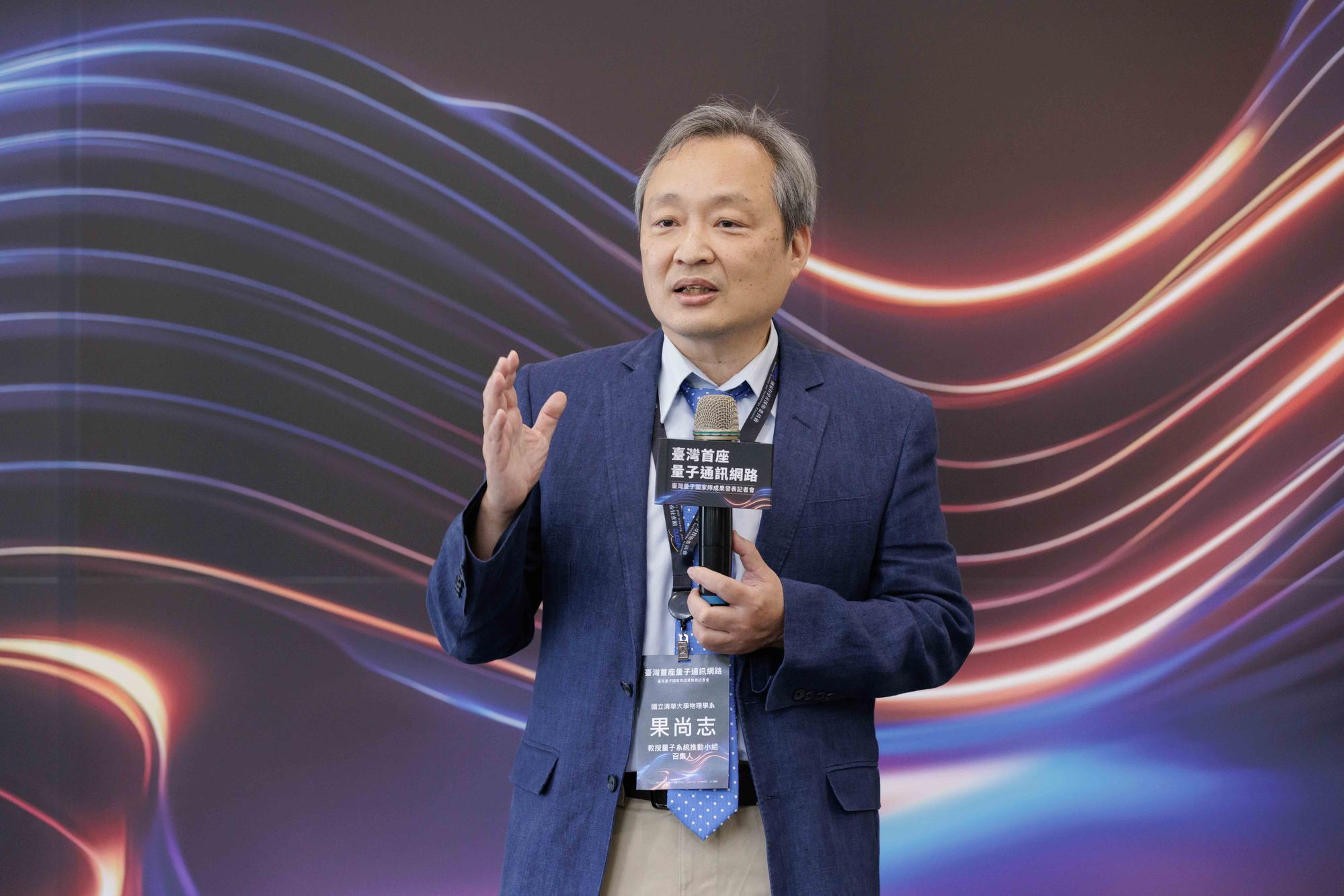
Prof. Felix Gwo (果尚志) of the Department of Physics said that the team's work is expected to make Taiwan a leader in the field of quantum secure communication technology.

Chunghwa Telecom CTO Rong-shy Lin (林榮賜) said that his company is planning to collaborate with the research team.
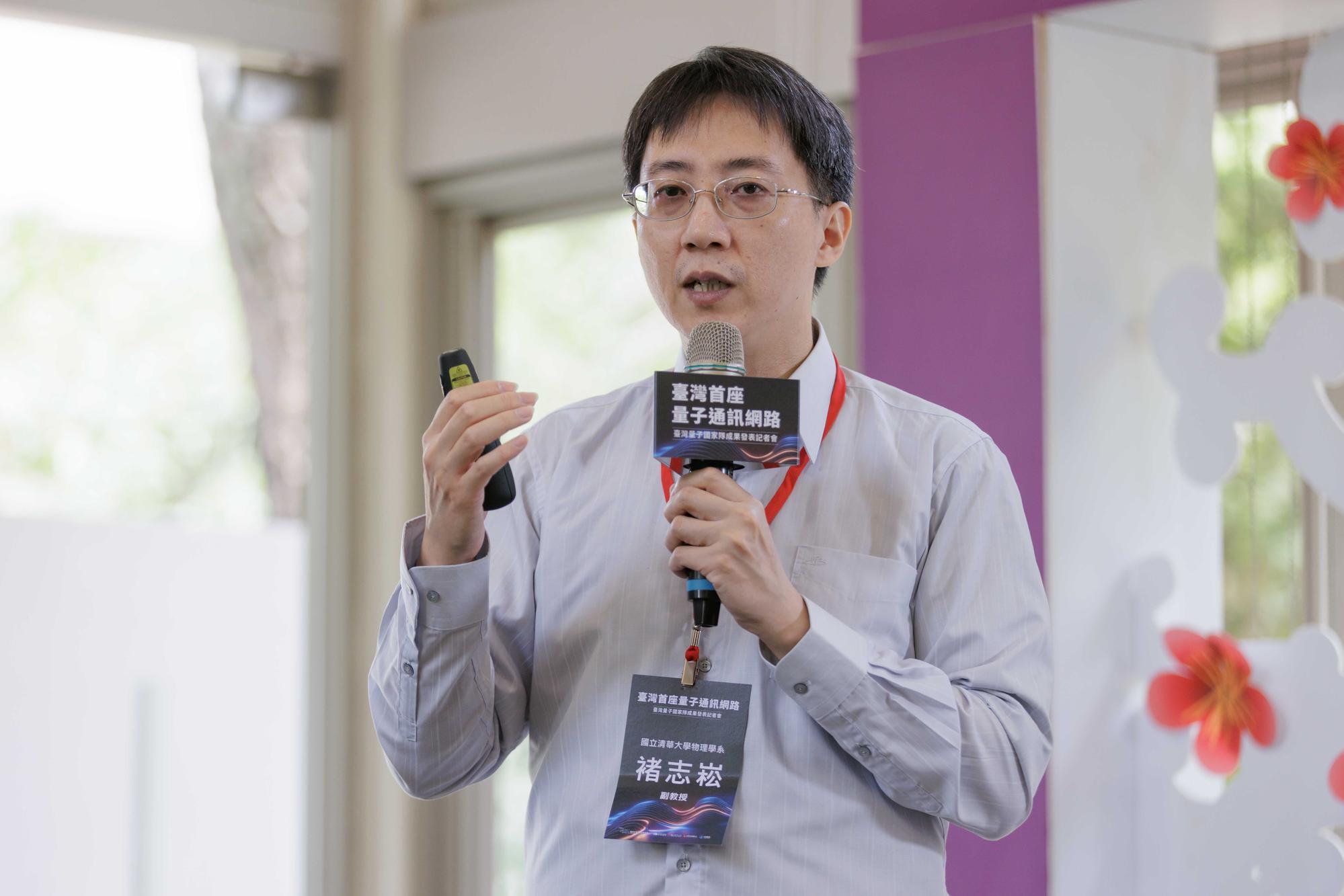
A research team led by A.P. Chih-sung Chuu (褚志崧) has developed Taiwan's first quantum secure communication network.
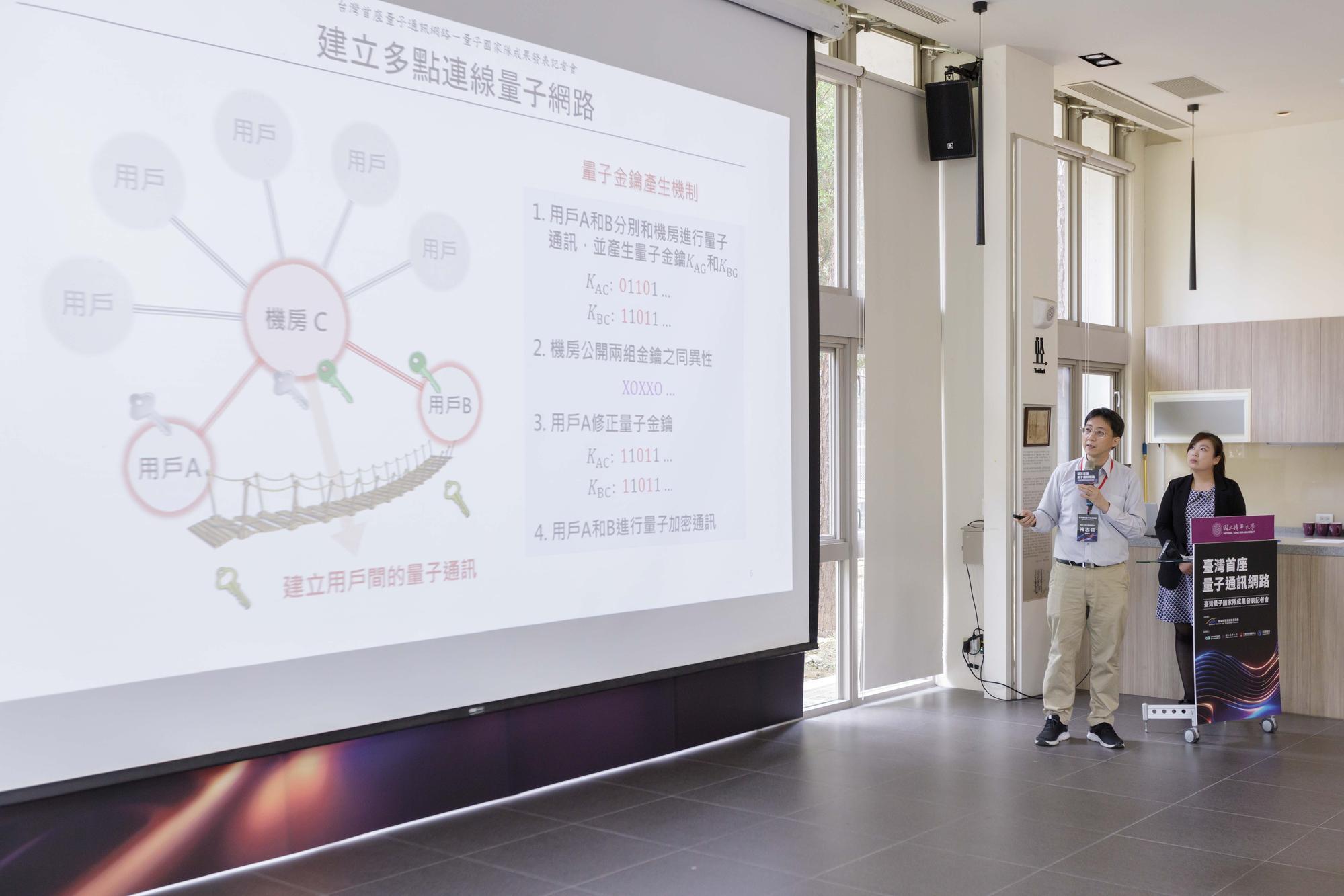
A.P. Chih-sung Chuu (褚志崧) explaining the quantum secure communication network.
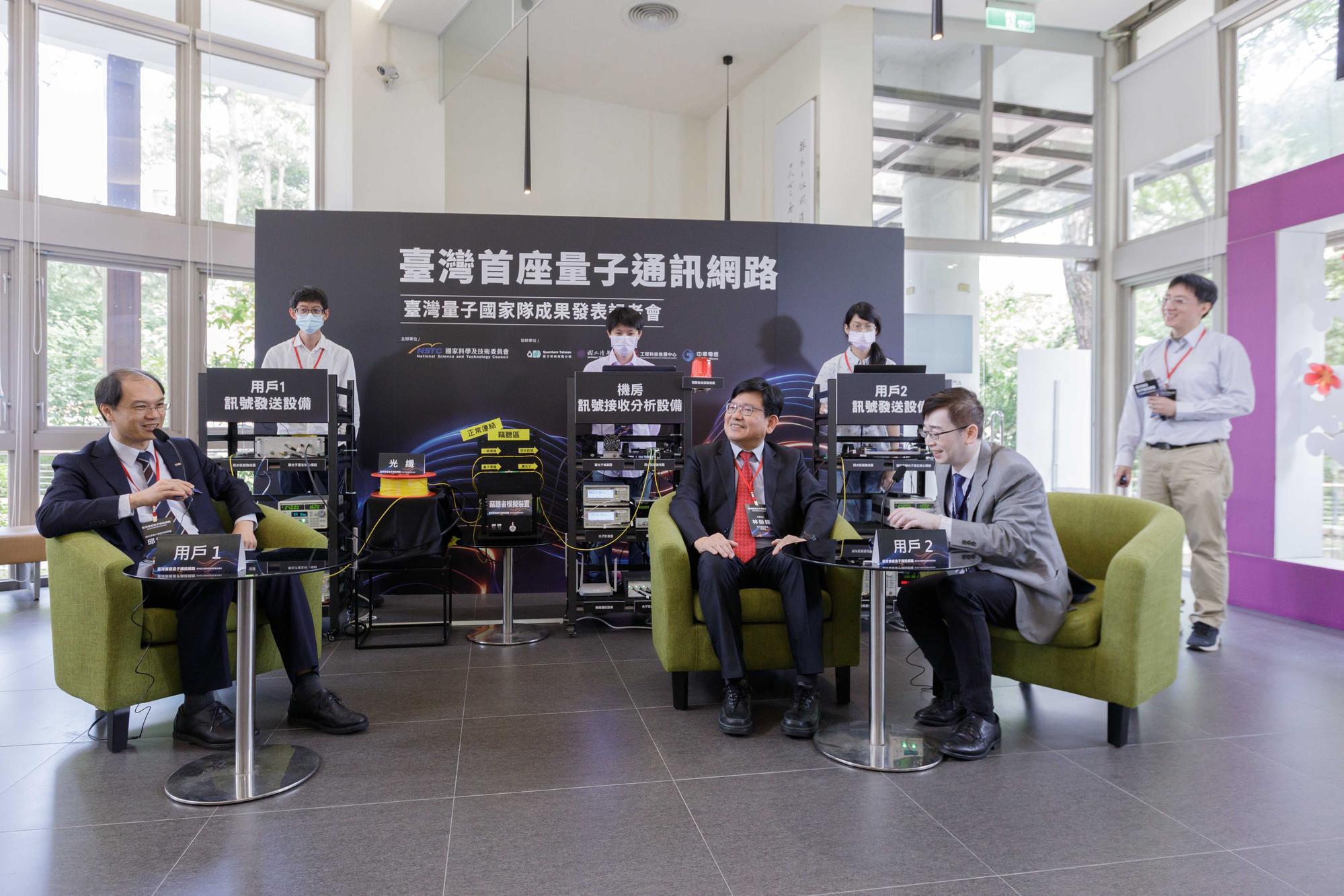
Left to right: Powen Chiu (邱博文), Rong-shy Lin (林榮賜), and Meng-fan Luo (羅夢凡) demonstrating the network.
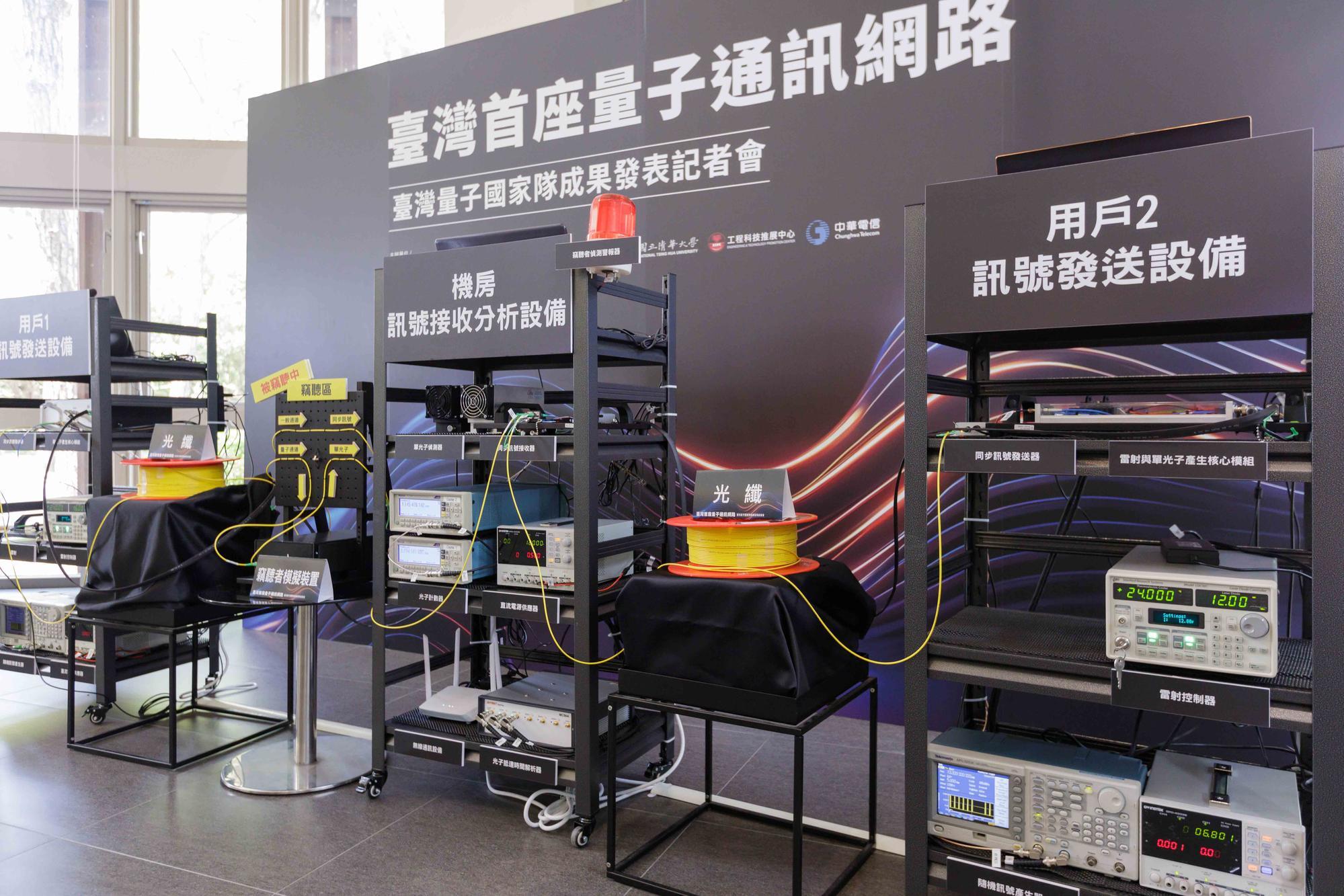
Taiwan's first quantum secure communication network.
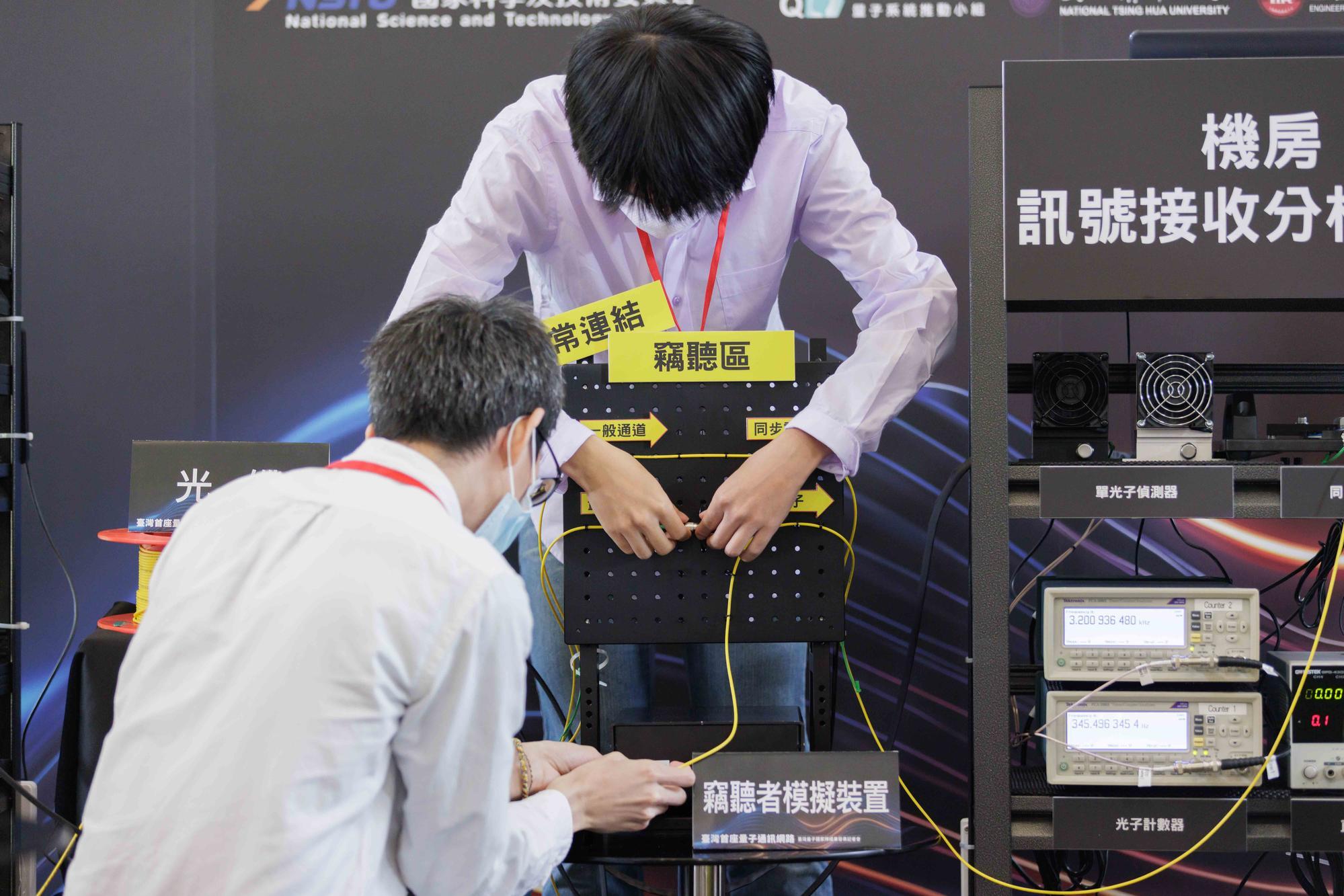
Demonstration of how the system prevents eavesdropping.
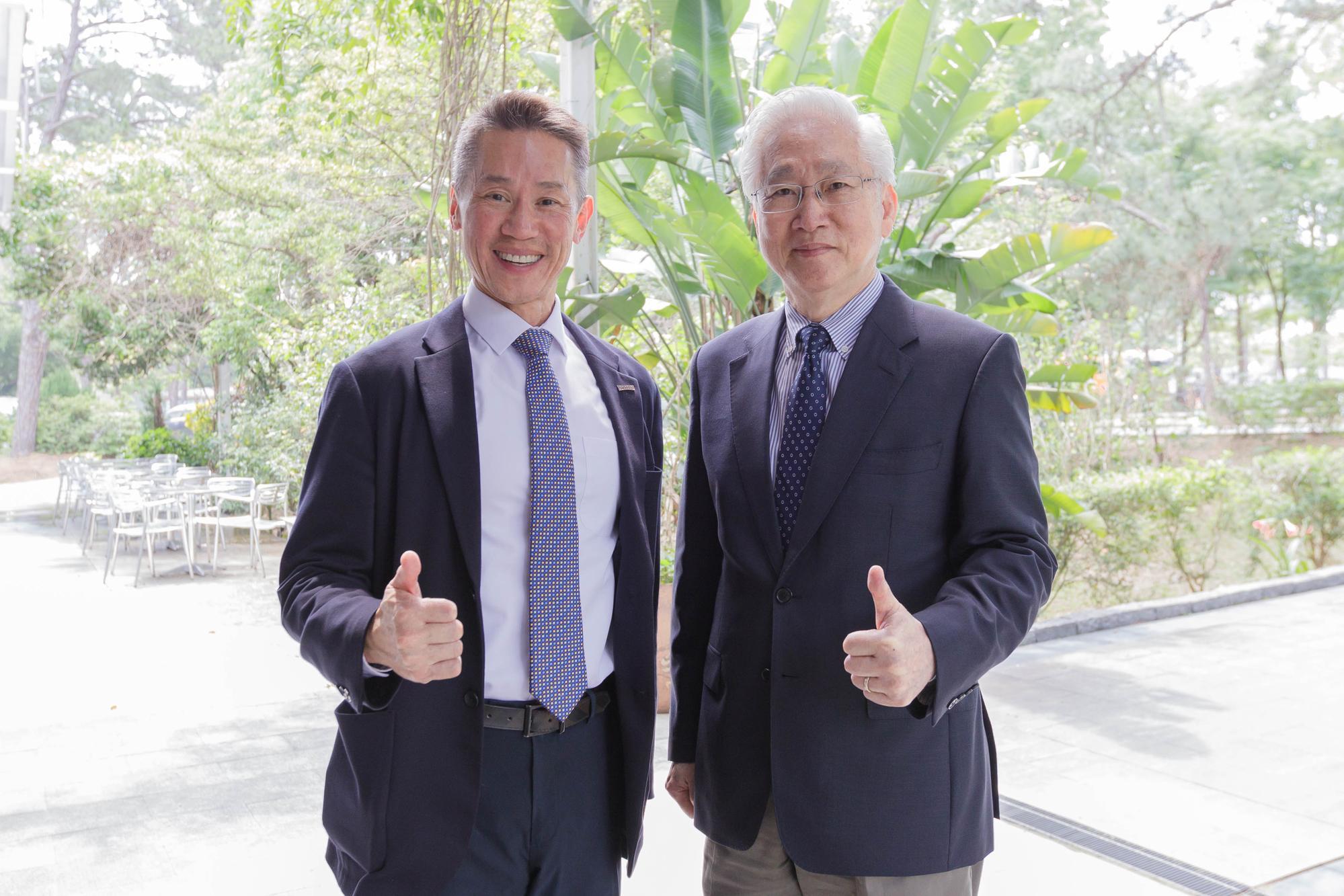
NTHU President W. John Kao (元校長) (left) with Minister Tsung-tsong Wu (吳政忠) of the NSTC.












